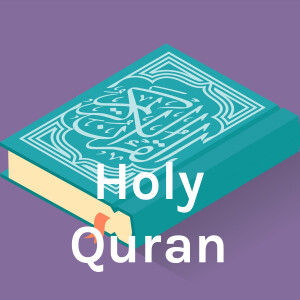
- Podcast Features
-
Monetization
-
Ads Marketplace
Join Ads Marketplace to earn through podcast sponsorships.
-
PodAds
Manage your ads with dynamic ad insertion capability.
-
Apple Podcasts Subscriptions Integration
Monetize with Apple Podcasts Subscriptions via Podbean.
-
Live Streaming
Earn rewards and recurring income from Fan Club membership.
-
Ads Marketplace
- Podbean App
-
Help and Support
-
Help Center
Get the answers and support you need.
-
Podbean Academy
Resources and guides to launch, grow, and monetize podcast.
-
Podbean Blog
Stay updated with the latest podcasting tips and trends.
-
What’s New
Check out our newest and recently released features!
-
Podcasting Smarter
Podcast interviews, best practices, and helpful tips.
-
Help Center
-
Popular Topics
-
How to Start a Podcast
The step-by-step guide to start your own podcast.
-
How to Start a Live Podcast
Create the best live podcast and engage your audience.
-
How to Monetize a Podcast
Tips on making the decision to monetize your podcast.
-
How to Promote Your Podcast
The best ways to get more eyes and ears on your podcast.
-
Podcast Advertising 101
Everything you need to know about podcast advertising.
-
Mobile Podcast Recording Guide
The ultimate guide to recording a podcast on your phone.
-
How to Use Group Recording
Steps to set up and use group recording in the Podbean app.
-
How to Start a Podcast
-
Podcasting
- Podcast Features
-
Monetization
-
Ads Marketplace
Join Ads Marketplace to earn through podcast sponsorships.
-
PodAds
Manage your ads with dynamic ad insertion capability.
-
Apple Podcasts Subscriptions Integration
Monetize with Apple Podcasts Subscriptions via Podbean.
-
Live Streaming
Earn rewards and recurring income from Fan Club membership.
-
Ads Marketplace
- Podbean App
- Advertisers
- Enterprise
- Pricing
-
Resources
-
Help and Support
-
Help Center
Get the answers and support you need.
-
Podbean Academy
Resources and guides to launch, grow, and monetize podcast.
-
Podbean Blog
Stay updated with the latest podcasting tips and trends.
-
What’s New
Check out our newest and recently released features!
-
Podcasting Smarter
Podcast interviews, best practices, and helpful tips.
-
Help Center
-
Popular Topics
-
How to Start a Podcast
The step-by-step guide to start your own podcast.
-
How to Start a Live Podcast
Create the best live podcast and engage your audience.
-
How to Monetize a Podcast
Tips on making the decision to monetize your podcast.
-
How to Promote Your Podcast
The best ways to get more eyes and ears on your podcast.
-
Podcast Advertising 101
Everything you need to know about podcast advertising.
-
Mobile Podcast Recording Guide
The ultimate guide to recording a podcast on your phone.
-
How to Use Group Recording
Steps to set up and use group recording in the Podbean app.
-
How to Start a Podcast
-
Help and Support
- Discover

Hud [1] (Arabic: هُود, Hūd),[2] is the 11th chapter (Surah)[3] of the Quran with 123 verses (ayat). It is about the prophet Hud. Regarding the timing and contextual background of the revelation (asbāb al-nuzūl), it is an earlier "Meccan surah", which means it is believed to have been revealed in Mecca, instead of later in Medina.
Q11:105-112 is preserved in the Ṣan‘ā’1 lower text.[4]
Quran 11 opens with a discussion on the nature of man and the punishment that awaits those who defy God. Thereafter, the main content of the surah is a series of stories of prophets who warned their people to follow God, the people persisting in defying God, and God punishing and killing them.
11:25-49 The story of Noah
Verses 11:25-49 tell the story of Noah and how his people did not believe his commands to follow God. The unbelievers are drowned in a flood, which includes Noah's son; Noah asks God about this act, but God rebukes Noah as being ignorant and says that Noah's son is "not a member of his family." Surah 66, At-Tahrim, elaborates on this and says that Noah's wife is an unbeliever in hell who was unfaithful to her husband.[2]:11:25–49
11:69-84 Sodom and GomorrahThe Quranic version of the Biblical story of Sodom and Gomorrah is in Verses 11:69-84. Abraham and Sarah are given the news of their son and grandson's forthcoming birth (Isaac and Jacob), after which they plead for mercy for Lot's people. God refuses the request, saying that the punishment cannot be averted. Lot offers his daughters to the men of Sodom, but they respond with disinterest and say "you know what we want."
11:80-84 HomosexualityVerses 11:80-84 confirms the Biblical account of homosexuality as being the crime of Lot's people. Angels descend to protect Lot and his daughters, and the city is destroyed by a stone rain. Lot's wife perishes as well.
More Episodes
 2020-11-16
2020-11-16
 2020-11-10
2020-11-10
 2020-10-29
2020-10-29
 2020-10-15
2020-10-15
 2020-10-11
2020-10-11
 2020-10-07
2020-10-07
 2020-10-04
2020-10-04
 2020-10-03
2020-10-03
 2020-09-26
2020-09-26
 2020-09-25
2020-09-25
 2020-09-25
2020-09-25
 2020-09-24
2020-09-24
 2020-09-24
2020-09-24
 2020-09-24
2020-09-24
 2020-09-10
2020-09-10
 2020-09-09
2020-09-09
 2020-09-09
2020-09-09
 2020-09-09
2020-09-09
Create your
podcast in
minutes
- Full-featured podcast site
- Unlimited storage and bandwidth
- Comprehensive podcast stats
- Distribute to Apple Podcasts, Spotify, and more
- Make money with your podcast
It is Free
- Privacy Policy
- Cookie Policy
- Terms of Use
- Consent Preferences
- Copyright © 2015-2025 Podbean.com




